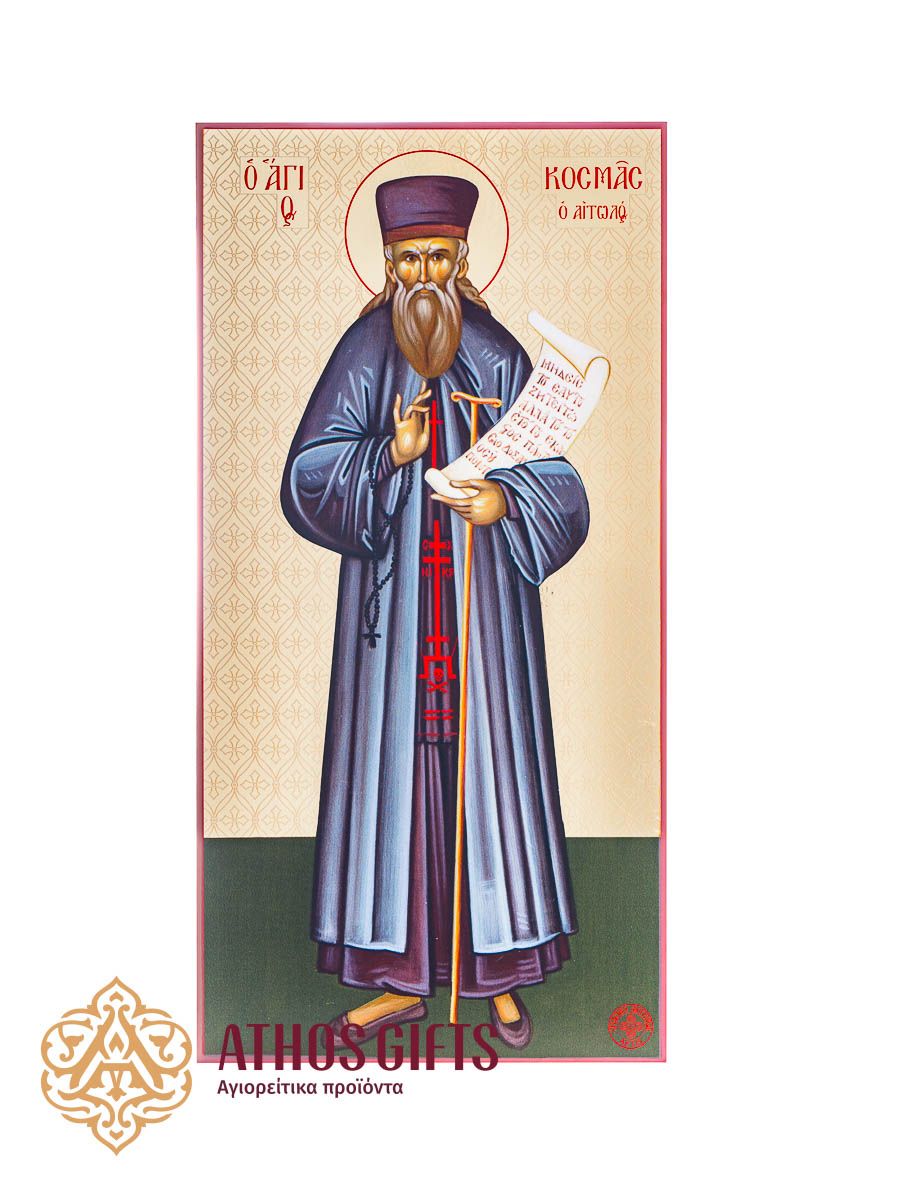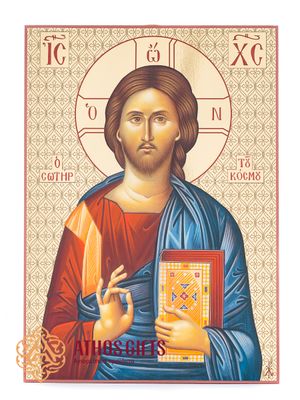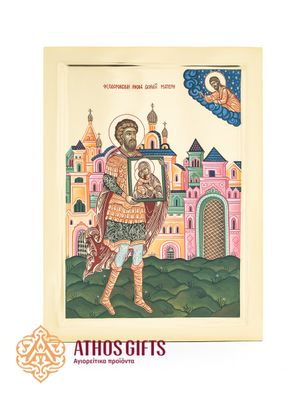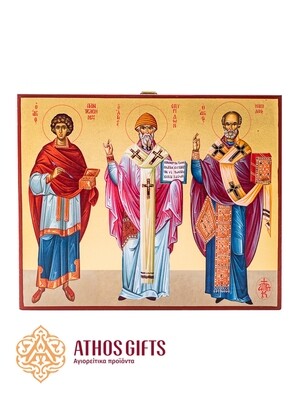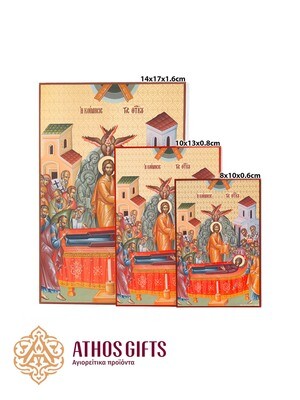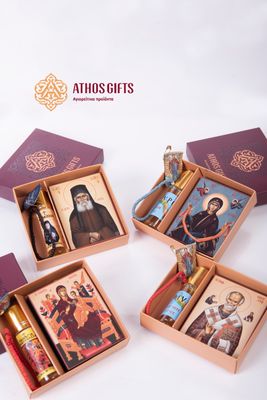Saint Cosmas of Aetolia
The icon is made on a particle board with the use of the most advanced imprinting and production techniques. The background is decorated in a way that gives the impression of glossy gilding.
The relics of St. Cosmas of Aetolia are kept in the Archdiocese of Tirana, Albania; there are also fragments of his relics on the island of Andros, in Konitsa, Greece, as well as other places.
Kosmas was born in 1714 in Mega Dendron, Aetolia, of pious and devout parents. He studied at the Athos Academy of the Holy Mountain. In 1759 he took monastic tonsure with the name Cosmas at the Athonite monastery of Philotheou and was later ordained a priest.
With the blessing of the brethren of the monastery, Cosmas went to Constantinople to meet with Patriarch Serapheim II. He believed that the Greek nation, enslaved by the Turks, needed an awakening and wished to preach the Word of God, for which he asked for his blessing. The patriarch blessed him, and Kosmas set out.
He preached in the surroundings of Constantinople, in the islands of the Aegean Sea, in the Peloponnese, in Macedonia, in the Ionian Islands, and in Northern Epirus.
He would mount the cross on the hill and begin his fiery sermon. Crowds of people used to gather to listen to him; their souls were revived with a desire to be free from the Turkish conquerors, as well as with love for education.
St. Cosmas of Aetolia can be considered the Christian missionary of the Greek nation of his time. He believed that the building of schools was of paramount importance, because there the children would learn the Greek language and the Word of Christ. He would also perform miracles during sermons.
These sermons resonated in the hearts of the people, but also angered many, including the Jewish traders. When Cosmas urged the Orthodox to stop trading on Sundays, moving it to the Sabbath, the Jews slandered him before the ruler of Berat (Northern Epirus), Ahmet Kurt-pasha, who ordered the saint's arrest. On August 24, 1779, while he was preaching in the village of Kolikondasi near Berat, he was caught and executed by hanging. The Turks threw his body into the Apso River. Three days later the village priest succeeded in retrieving the saint's body and burying it.
The memory of Cosmas of Aetolia is commemorated on August 24.
